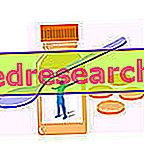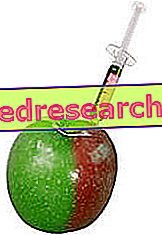Vitamin H, better known as Biotin, sometimes referred to as vitamin B7, is a water-soluble vitamin of the B complex.
Functions
The functions of vitamin H are of the coenzymatic- carboxylase type, enzymes belonging to the category of lyases that fix a CO 2 molecule and subsequently transfer it into the carboxylate one; in particular, vitamin H is the coenzyme of 4 very important carboxylases:
- Pyruvate carboxylase → gluconeogenesis
- Propionyl CoA carboxylase → propionate metabolism
- Methylcrotonyl CoA → metabolism of branched amino acids
- Acetyl CoA carboxylase → fatty acid synthesis.
Feeder foods
Vitamin H is ubiquitous but bioavailable only in foods of animal origin, without which it is difficult to guarantee the minimum levels of recommended intake;

Vitamin H absorption occurs in the intestine, more precisely in the jejunum and in the proximal ileum; the mechanisms are still little known but it is plausible that its uptake occurs by concentration gradient thanks to sodium (Na).
Distribution in the body
As can be deduced from the numerous metabolic functions of vitamin H, its concentration within the organism is uniformly distributed; in fact, representing a determinant coenzyme in carboxylation, vitamin H is required in all body districts (in the form of biocytin ) with particular density inside the liver, in which gluconeogenesis, the metabolism of branched amino acids and the synthesis of fatty acids they are particularly active.
The vitamin H delivery mechanism is not specific; it is found both in free form in plasma (20%) and in a form linked to albumin and globulin.
Deficiency and Excess
Vitamin H deficiency is very rare (especially in adults) and overdose (up to 10mg / day) does not generate signs of toxicity. It is possible that there is a defect in the intake of biotin in patients fed parenterally, in those suffering from intestinal malabsorption and in subjects who usually consume ONLY raw eggs as a food source of animal origin (some types of vegetarianism). This happens due to the binding action of avidin, a protein contained in the albumen which, if not previously denatured by cooking, hinders the absorption of vitamin H.
Bibliography:
- Recommended Nutrient Intake Levels for the Italian Population (LARN) - Italian Nutrition Society (SINU) - pag113-114.



